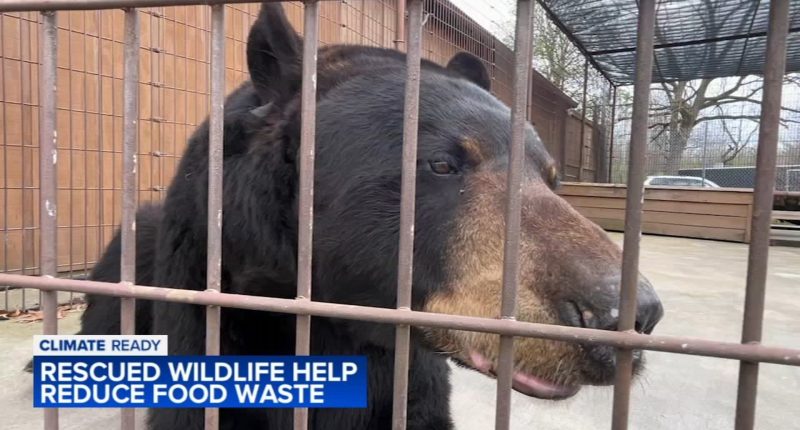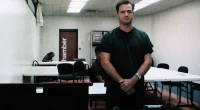Share this @internewscast.com
LOCKPORT (WLS) — The sound of howling wolf or a hungry tiger isn’t out of the norm for the neighbors who live in near the Big Run Wolf Ranch.
The federally approved non-profit educational center, focusing on wildlife native to North America, is located at the end of Farrel Road within a suburban area of Lockport.
About 16 rescued wildlife animals live on a farm, seven of which are considered seniors.
Rainah Runty manages the farm that her father has owned for about 39 years.
“Many of the animals here have been rescued, and while we strive to save as many as space permits, our main objective is to serve as a learning facility. We want to offer people the chance to see these animals up close and understand more about them,” stated Runty.
But the ranch also needs to feed the animals. And for some that means a lot of meat and fish.
The Northern Illinois Food Bank’s south suburban center in Joliet has been partnering with the Big Run Wolf Ranch for ten years.
Julie Yurko, who serves as president and CEO of the Northern Illinois Food Bank, mentioned, “We can supply proteins that, while unsuitable for human consumption, are entirely appropriate for the tigers, wolves, and bears living at the ranch.”
Grocery stores freeze and donate meat they can no longer sell to the food bank.
“We inspect it just like as if you brought that meat home and you froze it right away,” said Yurko. “It’s still good for human consumption, but sometimes when our volunteers are looking at the meat, they might see that the meat is discolored or there’s a rip in the packaging, and they’re concerned that it may have been compromised.”
The ranch will pick up that meat and fish about every two weeks.
“Wild animals have very strong enzymes in their stomachs. And that’s why in the wild they can eat these rotting carcasses and not get sick from it,” said Runty. “We completely survive off donations from the public or donations from the food bank.”
Since the program began, Yurko said the food bank has donated over 300,000 pounds to the ranch. “That’s 150 tons, she said. “The greenhouse gas emissions that would have come off of those meats, if we put them into the landfill, we have diverted the equivalent of 110 cars coming off the road for an entire year.”
A lot of the animals at the ranch were either rescued form USDA facilities that were shut down or from people who bought them illegally.
“Our American black bear, Kuma, who is 26 this year, he was rescued from animal control,” said Runty. “They had taken him from a lady who had bought him in Kankakee for $300.”
Runty said the bear who has now reached retirement, prefers salmon but will eat cod an catfish too. “He’s got expensive taste, he loves salmon,” said Runty.
The tiger will get about 18 pounds of food in one sitting. The tiger mostly eats poultry but he also likes fish, venison, goose meat, beef and pork.
There are seven gray wolves on the ranch. Runty said the wolves prefer a variety of pork, beef, venison, goose an chicken.
“We tried to give some snacks to Amow and Luna, the wolves in the enclosure,” said Runty. “But of course it’s hot today. And sometimes when it’s hot, they choose not to eat.”
“Sometimes they even do what’s called caching, where they dig a hole and they’ll bury meat and they go back to it later when they actually do want to eat something,” Runty explained.
The food bank helps the ranch’s bottom line. Any money saved goes towards the animals.
“That money can end up going towards the big projects we’re trying to do, like making big naturalistic enclosures,” said Runty.
That in turns helps the ranch do what they do best.
“It’s a really special place because, people can come here and we’re one-on-one with you,” said Runty. “Maybe they won’t be petting wolves and tigers, but they can at least get a one-on-one experience with them, teaching you all about them.”
The Big Run Wolf Ranch is located at 14857 Farrell Rd. in Lockport. Visits are by appointment only.
Copyright © 2025 WLS-TV. All Rights Reserved.

















